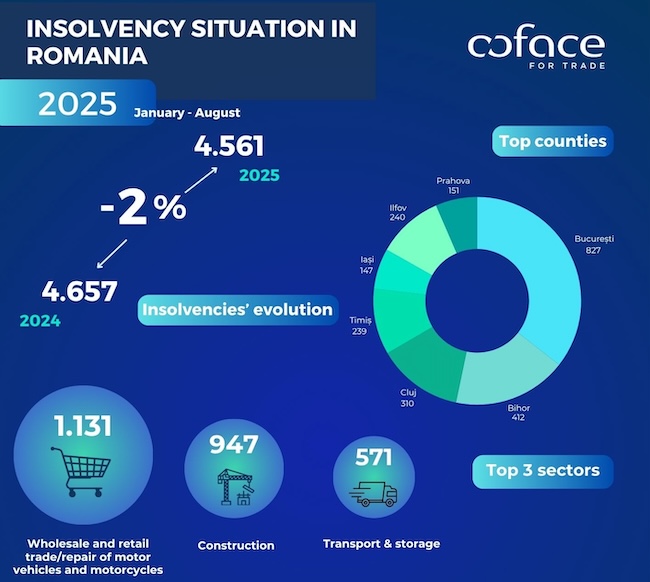The tax treatment of uncollected invoices changes - the cancellation of the debt is deducted in full, but its recovery is penalized

Opinion material by Alexandra Smedoiu, Fiscal Services Partner, Deloitte Romania
Companies that face problems in collecting invoices will benefit, from next year, from an improvement in the conditions in which they can deduct their losses from uncollected receivables from customers. It is a relaxation of the tax provisions, which would come into force on January 1, 2021 and which offers the possibility of full deduction of provisions for bad customers, compared to the 30% ceiling currently imposed. For the full deduction, however, a number of conditions remain in force: the claim must be older than 270 days, not be guaranteed and not be on an affiliated person.
The measure, long demanded by the business community, is especially welcome in the context of the COVID-19 pandemic, when more and more companies are facing delays in collecting invoices. At the same time, it should be noted that, for invoices issued and not collected, the supplier pays to the state the value added tax and the profit tax from its own funds.
This change will reduce the tax burden for companies affected by the financial problems of their customers. In addition, they will be encouraged to behave prudently and to protect themselves against the risk of non-collection, by setting up provisions in time and at a value as close as possible to that of the outstanding receivable, in order to present a correct picture of the financial statements. At the same time, the possibility to reduce the payment tax by 16% of the value of the provision is meant to compensate the negative effect generated by the non-collection of invoices in cash flows.
Tax restrictions imposed on the sale of receivables, still in force
This amendment to the Fiscal Code is to be appreciated, but another old "wound" remains open, namely a provision that reduces companies' access to finance through factoring operations. It is about limiting the deduction of losses from the assignment of receivables to a ceiling of 30%. If a claim is sold, for example, at a quarter of its face value, the difference of 75%, considered a loss, is not fully deductible, but only 30%. Thus, in order to recover 25% of the amount of the claim, the creditor will have to bear, in addition to the commercial loss of 75%, a tax cost of almost 9%, representing the part of the loss that cannot be deducted fiscally in this example.
In other words, the full deductibility of provisions for uncollected invoices is favorable, but incomplete. Basically, if a creditor decides to give up a debt, he benefits from the full deduction of the loss, but if he wants to recover a part, he has to take extra money "out of his pocket".
The negative effects of this discrepancy in tax treatment will really be seen especially next year, when many companies that will need to resort to cash flow financing operations for uncollected invoices will find that they have to bear a significant tax cost. In addition, this limitation will also affect commercial banks, which will face non-performing loans on the rise after the moratorium expires (the possibility of postponing the payment of installments).
It is also worth noting that the treatment in Romanian legislation is very restrictive compared to other Member States of the European Union. According to a Deloitte comparative analysis, the vast majority of Member States grant full deductibility for losses incurred by credit institutions as a result of the sale of receivables resulting from non-performing loans, and others impose certain conditions and limitations, but less restrictive than in Romania. .
Therefore, the recent amendments to the Fiscal Code, long awaited by the business environment, are welcome, but insufficient, given that next year a more difficult one is announced, and the probability of facing an increase in uncollected receivables and non-performing loans is increasing.






